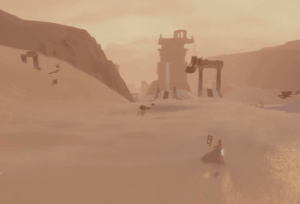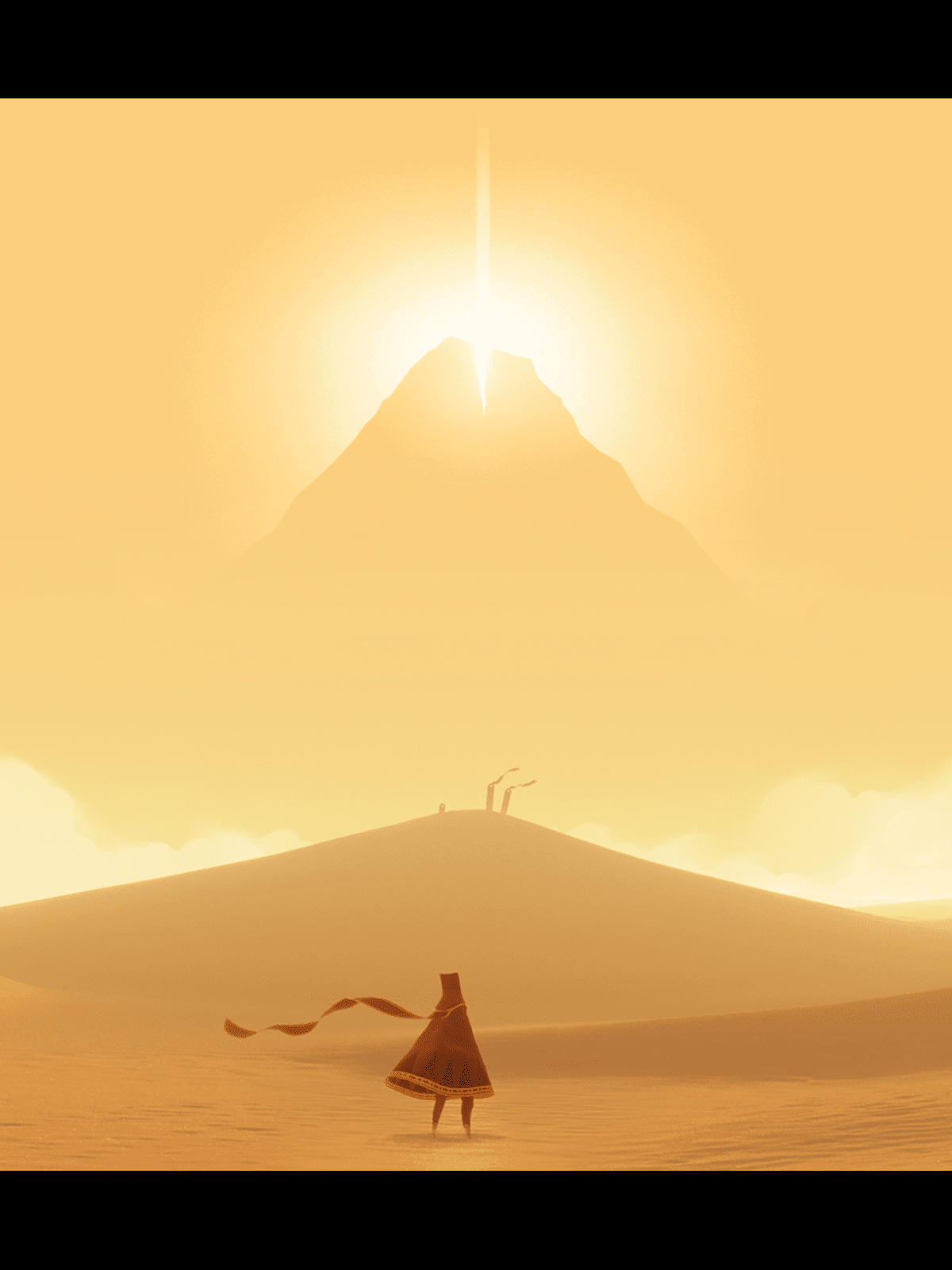Journey is a walking simulator developed by That Game Company aimed towards all ages, featuring a simple yet emotionally evocative story told completely through visuals without any words. This “game” is not for people who want a hardcore gaming experience, but rather for people who are looking for a story and experience first and a game of puzzles second. Journey is available on a variety of platforms, including playstation and PC (through steam) and iOS; I played it on my iPhone. Journey uses the mechanic of walking to control the pacing of its story, rewarding patience with moments of excitement and satisfaction, amplifying the story’s core themes of working within nature as opposed to exploiting it.
From the very beginning of this game, it’s clear that one of the central skills required by the player is patience. Before the title screen, the player has to walk up a hill, a journey with no challenge, resources, strategy–just walking.

I’ll admit, this gave me an immediate sense of boredom. Or maybe not so much a sense of boredom as a sense that I was going to be bored. Despite this fear, and I’ll admit, many moments throughout the gameplay where boredom crept in, I finished the entire game, which took somewhere from 2-3 hours, beyond the time I was required to play the game just for this writeup. So what got me to keep playing? In short, this moment right here:

After probably 30-40 minutes of play involving just walking, and some enjoyable flying, you reach a glorious mini-game/level where you slide down a ski-slope-like path alongside cute carpet creatures that you’ve been helping to free. I felt ridiculously elated when this section began. A combination of the music, the fellow creatures, and the beautiful visuals contributed to this feeling, but most of all was the stark change of pace. Going from walking to sliding, jumping, and playing with these little creatures was in such stark contrast to the rest of the gameplay up to that point that it felt earned in a way that was especially gratifying.
As the story progressed, I noticed a significant connection between the story’s themes and the gameplay itself. The story, roughly, is about a civilization that harnesses magic/power and uses it to their detriment. They exploit nature, resulting in their downfall. The slow-moving gameplay, especially that involving saving carpet-creatures from various cages, emphasizes working within nature; it might not all be glamorous it certainly wont be the most stimulating thing you can do. But, as encapsulated in the feeling you play with carpet-creatures quickly sliding down this sand-slope, you experience a profound sense of release and reward. This climactic moment, combined with the stirring score and the vibrant, almost ethereal visuals, transforms what could be a mundane activity into a deeply fulfilling part of the game. It serves as a metaphor for the broader narrative—patience and respect for the environment lead to moments of beauty and joy.




